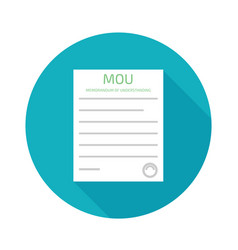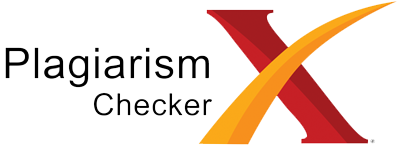Pengaruh Flipped Classroom Dan Literasi Digital Terhadap Penguasaan Konsep Sosiologi Materi Integrasi Sosial
Abstract
Learning sociology, need an effective strategy to succeed in building a deep concept of the main study that including the social life of the community. The teacher's teaching method is in the same direction, resulting in boredom. The lack of appropriateness of illustrations in reading sources with the current situation of society, requires teachers to use other references such as articles, news, videos on the internet. Digital literacy have important role in discovering and filtering information, managing digital media. For deepening the concepts and studies, it takes more study time and a learning environment that facilitates these needs. Students from a high school in Surakarta who are in class XI are the focus of the quasi-experimental research. Concept mastery tests and digital literacy questionnaires are the instruments used. The results of the analysis test stated that there was differences in mastery of concepts between groups of students who apply the flipped classroom strategy and discovery learning affected by digital literacy. Application of flipped classroom took more benefit for students with the availability of a lot of time and facilitated independent learning such as interacting with learning videos, understanding, and exploring other resources before studying in class. Activities in class are more focused on discussions enriching the understanding that was previously owned, so that mastery of concepts is developed through learning experiences and exchange of information to improve thinking skills in solving problems from case studies.
Abstrak
Dalam pembelajaran Sosiologi diperlukan strategi efektif agar berhasil membangun konsep yang kuat terhadap kajian pokok yang mencakup kehidupan sosial masyarakat. Metode ajar guru yang searah, mengakibatkan kejenuhan. Kurang sesuainya ilustrasi pada sumber bacaan dengan situasi masyarakat terkini, menuntut guru perlu memanfaatkan referensi lain misalnya artikel, berita, video di internet. Literasi digital memiliki peran penting guna menyaring dan menemukan informasi, mengelola media digital. Untuk pendalaman konsep dan kajian, diperlukan waktu belajar lebih dan lingkungan belajar yang memfasilitasi kebutuhan tersebut. Peserta didik salah satu SMA Kota Surakarta yang duduk di kelas XI menjadi fokus penelitian eksperimen semu. Tes penguasaan konsep dan angket literasi digital merupakan instrumen yang digunakan. Hipotesis diuji dengan analisis kovarian berbantuan SPSS 22. Hasil uji analisis menyatakan adanya perbedaan penguasaan konsep antara kelompok peserta didik yang menerapkan strategi flipped classroom dan discovery learning yang dipengaruhi oleh literasi digital. Penerapan flipped classroom menguntungkan peserta didik dengan tersedianya banyak waktu dan terfasilitasinya belajar mandiri seperti berinteraksi dengan video pembelajaran, memahami, dan mengeksplorasi sumber lain sebelum belajar di kelas. Aktivitas di kelas lebih fokus pada diskusi memperkaya pemahaman yang sebelumnya dimiliki, sehingga penguasaan konsep dikembangkan melalui pengalaman belajar dan pertukaran informasi untuk meningkatkan kecakapan berpikir dalam menyelesaikan permasalahan dari studi kasus.Keywords
Full Text:
PDFReferences
Abeysekera, L., & Dawson, P. (2015). Motivation and cognitive load in the flipped classroom: definition, rationale and a call for research. Higher Education Research and Development, 34(1), 1–14. https://doi.org/10.1080/07294360.2014.934336
Akbar, M. F., & Anggraeni, F. D. (2017). Teknologi Dalam Pendidikan : Literasi. Digital dan Self-Directed Learning pada Mahasiswa Skripsi. Jurnal Indigenous, 2(1), 28–38. https://doi.org/10.23917/indigenous.v1i1.4458
Alamri, M. M. (2019). Students academic achievement perfomance and satisfaction in a flipped classroom in Saudi Arabia. Int.J. Technology Enhanced Learning, 11(1), 103–119. https://doi.org/101504/IJTEL.2019.0907B0
Alavi, S. M., Borzabadi, D., & Dashtestani, R. (2016). Computer literacy in learning academic English: Iranian EAP students’ and instructors’ attitudes and perspectives. Teaching English with Technology, 16(4), 56–77.
Amanda, F. F., Sumitro, S. B., Lestari, S. R., & Ibrohim, I. (2021). Analysis of the Relationship Between Concept Mastery and Problem-Solving Skills of Pre-Service Biology Teachers in Human Physiology Courses. Jurnal Pendidikan Sains Indonesia, 9(3), 421–432. https://doi.org/10.24815/jpsi.v9i3.19956
Anbiyaa, F. (2021). Pengaruh Literasi Digital, Tingkat Kreativitas dan Minat Belajar di Era Digital terhadap Hasil Belajar pada Peserta didik Pendidikan Ekonomi Angkatan 2016-2018 Fakultas Ekonomi dan Bisnis Unsoed. Universitas Jenderal Soedirman.
Anderson, L. W., & Krathwohl, D. R. (2001). A Taxonomy for Learning, Teaching, and Assesing: A Revision of Bloom’s Taxonomy of Educational Objectives. Addison Wesley Longman, Inc.
Ardiansah, F. (2019). Pengaruh Penggunaan Media Video Terhadap Minat dan Hasil Belajar Siswa Kelas XI Pada Pelajaran PAI di SMA YPI Tunas Bangsa Palembang. JKTP: Jurnal Kajian Teknologi Pendidikan, 2(1), 1-8. http://dx.doi.org/10.17977/um038v2i12019p001
Aslamiyah, T., Setyosari, P., & Praherdhiono, H. (2019). Blended Learning dan Kemandirian Belajar Mahasiswa Teknologi Pendidikan. JKTP: Jurnal Kajian Teknologi Pendidikan, 2(2), 109-114. http://dx.doi.org/10.17977/um038v2i22019p109
Awidi, I. T., & Paynter, M. (2019). The impact of a flipped classroom approach on student learning experience. Computers and Education, 128, 269–283. https://doi.org/10.1016/j.compedu.2018.09.013
Bergmann, J., & Sams, A. (2012). Flip your classroom: reach every student in every class every day. International Society for Technology in Education.
Cerelia, J. (2021). Learning loss Akibat Pembelajaran Jarak Jauh Selama PANDEMI Covid-19 di Indonesia. Prosiding Seminar Nasional Statistika X.
Damayanti, S. A., Santyasa, I. W., & Sudiatmika, A. A. I. A. R. (2020). Pengaruh Model Problem Based Learning dengan Flipped classroom terhadap Kemampuan Berpikir Kreatif. Jurnal Kependidikan, 4(1), 83–98. https://doi.org/10.21831/jk.v4i1.25460
Darmawan, W., Kuswandi, D., & Praherdhiono, H. (2020). Pengaruh Blended Learning Berbasis Flipped classroom Pada Mata Pelajaran Prakarya Terhadap Hasil Belajar Siswa Kelas X SMK. Edcomtech, 5(1), 170–179.
Davies, R. S., Dean, D. L., & Ball, N. (2013). Flipping the Classroom and Instructional Technology Integration in a College-Level Information Systems Spreadsheet Course. Education Technology Research and Development, 61(4), 563–580. http://dx.doi.org/10.1007/s11423-013-9305-6
English, J. A. (2016). A Digital Literacy Initiative in Honors Perception of Students and Instructors about its Impact on Learning and Pedagogy. Journal of the National Collegiate Honors Council, 17(2), 125–155.
Ferrari, A. (n.d.). DIGCOMP: A framework for developing and understanding digital competence in Europe. Publications Office of the European Union Luxembourg.
Folia, A. Y. (2019). A Comparative Study Of Electrical Engineering Students’ Reaction When Exposed To A Flipped classroom Pedagogy. Universitas Pendidikan Indonesia.
Hague, C., & Payton, S. (2010). Digital Literacy Across the Curriculum. Futurelab.
Jenirita, K., Nurul, A., & Sundaygara, C. (2021). Discovery Learning berbasis Flipped classroom terhadap Aktivitas dan Penguasaan Konsep. Rainstek: Jurnal Terapan Sains & Teknologi, 3(1), 51–58.
Johnston, N. (2020). The Shift towards Digital Literacy in Australian University Libraries: Developing a Digital Literacy Framework. Journal of the Australian Library and Information Association, 69(1), 93–101. https://doi.org/10.1080/24750158.2020.1712638
Kaeophanuek, S., Aitip, N., & Nilsook, P. (2018). How to Enhance Digital Literacy Skills among Information Sciences Students. International Journal of Information and Education Technology, 8(4), 292–297. https://doi.org/10.18178/ijiet.2018.8.4.1050
Kemendikbud. (2021). Dorong Pemulihan Pembelajaran di Masa Pandemi, Kurikulum Nasional Siapkan Tiga Opsi. Kemdikbud.Go.Id. https://www.kemdikbud.go.id/main/blog/2021/12/dorong-pemulihan-pembelajaran-di-masa-pandemi-kurikulum-nasional-siapkan-tiga-opsi
Kong, S. C. (2014). Developing information literacy and critical thinking skills through domain knowledge learning in digital classrooms: An experience of practicing flipped classroom strategy. Computers & Education, 78, 160–173. https://doi.org/10.1016/j.compedu. 2014.05.009
Latip, A., Sutantri, N., & Hardinata, A. (2022). The effect of digital literacy on student learning outcomes in chemistry learning. Jurnal Inovasi Pendidikan IPA, 8(2), 112–120. https://doi.org/10.21831/jipi.v8i2.40567
Linn, R. L. (1989). Educational measurement (3rd ed.). Macmillan Publishing Co, Inc.
Lubis, H. (2018). Peningkatan Pemahaman Konsep Dasar Sosiologi melalui Media Pembelajaran Teka Teki Silang Sosiologi. Jurnal Hermeneutika, 4(2), 37–36.
Maphosa, C., & Bhebhe, S. (2019). Digital Literacy: A Must For Open Distance and E-Learning (ODEL) Students. European Journal of Education Studies, 5(10), 186–199. http://dx.doi.org/10.46827/ejes.v0i0.2274
Mastel.id. (2017). Hasil Survey Mastel Tentang Wabah Hoax Nasional. https://mastel.id/hasil-survey-wabah-hoax-nasional-2017/
Meyers, E. M., Erickson, I., & Small, R. V. (2013). Digital Literacy and Informal Learning Environments: An Introduction. Learning, Media and Technology, 38, 355–367. https://doi.org/10.1080/17439884.2013.783597
Nojeng, A., Alwi, A. S., Aisah, A. N., Muzyaitir, Z., & Fardan, M. (2023). Evaluasi Kepuasan Mahasiswa Terhadap Pembelajaran Dengan Konsep Flipped Classroom Di Masa Endemi Covid-19. Indonesian Technology and Education Journal, 1(1), 1-10.
Nurjanah, E. ., Rusmana, A., & Yanto, A. (2017). Hubungan Literasi Digital dengan Kualitas Penggunaan E-Resources. Lentera Pustaka: Jurnal Kajian Ilmu Perpustakaan, Informasi Dan Kearsipan, 3(2), 117–140. https://doi.org/10.14710/lenpust.v3i2.16737
Ozdamar-Keskin, N., Ozata, F. Z., Banar, K., & Royle, K. (2015). Examining Digital Literacy Competences and Learning Habits of Open and Distance Learners. Contemporary Educational Technology, 6(1), 74–90. https://doi.org/10.30935/cedtech/6140
Pagani, L., Argentin, G., Gui, M., & Stanca, L. (2016). The impact of digital skills on educational outcomes: evidence from performance tests. Educational Studies, 42(2), 137–162. https://doi.org/10.1080/03055698.2016.1148588
Pilkington, O. A. (2018). Active Learning for an Online Composition Classroom : Blogging as an Enhancement of Online Curriculum. Journal of Educational Technology Systems, 47(2), 1–14. https://doi.org/10.1177/ 0047239518788278
Pratiwi, N., & Pritanova, N. (2017). Pengaruh Literasi Digital Terhadap Psikologis Anak Dan Remaja. Semantik, 6(1), 11. https://doi.org/10.22460/semantik.v6i1.p11-24
Purnomo, A., Ratnawati, N., & Aristin, N. (2016). Pengembangan Pembelajaran Blended Learning Pada Generasi Z. Jurnal Teori Dan Praksis Pembelajaran IPS, 1(1), 70–76. http://dx.doi.org/10.17977/um022v1i12016p070
Radovan, V. (2014). Digital Literacy as a Prerequisite for Achieving Good Academic Performance. Ecil.
Ramadani, A., Sulthoni, S., & Wedi, A. (2019). Faktor-Faktor yang Berpengaruh Terhadap Implementasi Blended Learning di Jurusan Teknologi Pendidikan Universitas Negeri Malang. JKTP: Jurnal Kajian Teknologi Pendidikan, 2(1), 62-67. doi:http://dx.doi.org/10.17977/um038v2i12019p062
Reflianto, Setyosari, P., Kuswandi, D., & Widiati, U. (2021). Reading Comprehension Skills: The Effect of Online Flipped classroom Learning and Student Engagement during the COVID-19 Pandemic. European Journal of Educational Research, 10(4), 1613–1624.
Restianty, A. (2018). Literasi Digital, Sebuah Tantangan Baru Dalam Literasi Media. Jurnal Kehumasan, 1(1), 72–87.
Sari, W. K., & Nada, E. I. (2020). Analisis Literasi Digital Calon Guru Kimia dalam Pelaksanaan PPL Berbasis Virtual di Masa Pandemi Covid 19. Orbital: Jurnal Pendidikan Kimia, 4(2), 111–121. https://doi.org/10.19109/ ojpk.v4i2.6704
Silaban, B. (2014). Hubungan Antara Penguasaan Konsep Fisika dan Kreativitas dengan Kemampuan Memecahkan Masalah pada Materi Pokok Listrik Statis. Jurnal Penelitian Bidang Pendidikan, 20(1), 65–75.
Stillman, D., & Stillman, J. (2017). Gen Z @ Work : How The Next Generation is Transforming The Workplace. Harper Business.
Sugiyono. (2009). Metode Penelitian Pendidikan Pendekatan Kuantitatif, Kualitatif, dan R&D. Alfabeta.
Supardan, D. (2013). Pengantar Ilmu Sosial : Sebuah Kajian Pendekatan Struktural. Bumi Aksara.
Tang, C. M., & Chaw, L. Y. (2016). Digital Literacy: A Prerequisite for Effective Learning in a Blended Learning Environment? Electronic Journal of ELearning, 14(1), 54–65.
Wijaya, M., & Hasanah, N. (2019). Implementasi Pembelajaran Kitab Kuning Melalui Model Pembelajaran Flipped classroom. Muróbbî: Jurnal Ilmu Pendidikan, 3(1), 1–20. https://doi.org/10.52431/murobbi.v3i1.170
Yudianda, E., Cahyani, I., & Abidin, Y. (2022). Model Pembelajaran Kelas Terbalik Berbasis Literasi Digital: Studi Pengembangan untuk Pembelajaran Menulis Teks Anekdot. Disastra: Jurnal Pendidikan Bahasa Dan Sastra Indonesia, 4(1), 97–107. http://dx.doi.org/10.29300/disastra.v4i1.5435
Yusuf, S. E. (2022). Pengaruh Peer Instruction Flipped classroom dan Literasi Digital Terhadap Hasil Belajar Ekonomi Kelas XII BDP di SMK Negeri 1 Surakarta. Universitas Sebelas Maret.
DOI: http://dx.doi.org/10.17977/um038v6i22023p120
Refbacks
- There are currently no refbacks.
Copyright (c) 2023 Ruth Heradityas Nugrahani

This work is licensed under a Creative Commons Attribution-ShareAlike 4.0 International License.
JKTP: Jurnal Kajian Teknologi Pendidikan published by Department of Educational Technology, Faculty of Education, State University of Malang in Collaboration with Asosiasi Program Studi Teknologi Pendidikan Indonesia (APS TPI).
Publisher Address:
Lab. Teknologi Pendidikan, Gd.E2, Lt.1
Fakultas Ilmu Pendidikan Universitas Negeri Malang
Jl. Semarang 5, Kota Malang Email: jktp.fip@um.ac.id
========================================================================================================
| INDEXED BY | TOOLS | PLAGIARISM CHECK | ARTICLE TEMPLATE |
|
|

JKTP: Jurnal Kajian Teknologi Pendidikan is licensed under a Creative Commons Attribution-ShareAlike 4.0 International License.
JKTP Statistics (Since July 13th, 2020)





.png)












